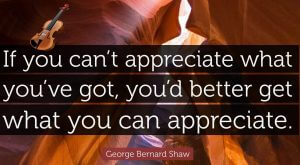It’s taken millions, maybe even billions of years to evolve into a species that is 99% corrupted into believing that to get something it is enough to wish to.
For me this was invisible for a long time…
The first glimpse I got was when I first heard about satsang… a group of devotees sitting around a dude or dudette and attempt to absorb their whatever… vibration, peace, knowledge… all things that you cannot fully absorb, because they need to be worked for.
My parents weren’t wearing those distorting glasses. ((Partly because that generation still knew that to get something you need to work for it. Partly because of the Jewish emphasis on learning.))
My mother helped us children memorize poems. I am not the memorizing type, my autistic brain didn’t like it, but, it seems, everything I could not figure out myself, I could eventually memorize. With more work than I consider normal.
The second high school I went to, accepted me at age 16, was a elite high school: at the end of the year my father was asked to take me to a school that was a better match to me: a high school with lower requirement. Because I wasn’t doing well. I’ll attempt to translate my grade average to more universal numbers here, on a 1-100 scale, I fared at 76%. ((in US school equivalent: 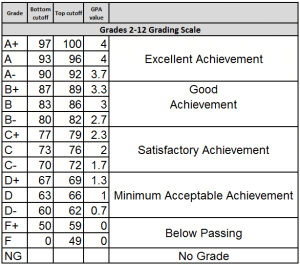 )) That wasn’t high enough in this school.
)) That wasn’t high enough in this school.
My father did what he needed to do to spare me from the trauma of being kicked out and have to change school again… So I started grade three of the four year high school at the same school again.
 I was lucky, at age 13 I learned how to produce results, it was just a question of applying it in school as well. I am referring to my violin story where I learned The Lesson: you need to work for what you want. And when you are getting good at it, you are going to love it.
I was lucky, at age 13 I learned how to produce results, it was just a question of applying it in school as well. I am referring to my violin story where I learned The Lesson: you need to work for what you want. And when you are getting good at it, you are going to love it.
So I applied it to high school, and by midterm my grade average was 94%. And I didn’t let up.
I applied myself all the way to the end of high school, through university (five years), the two more graduate degrees I went for, Landmark Education, another high level learning opportunity.
I read that way. I watch Netflix that way. I teach that way.
But you, my dear reader, you never learned the lesson.
I set up the 20-day skill learning challenge, and made it compulsory for my Playground students, because even learning is a skill that needs to be learned.
You missed that when you were young, but it is never too late to have a happy childhood: being able to learn was supposed to be part of childhood… but you can learn now.
It seems that you need to be taught, by the way.
I found a coursera course https://www.coursera.org/learn/learning-how-to-learn and if I am not mistaken, you can learn for free. Class begins today… but maybe it is just an evergreen course? I am not sure.
This can be your “skill learning challenge” in the 20 day challenge program…
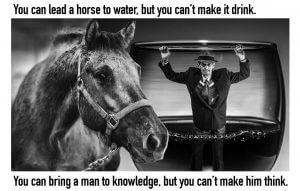 Because unless you learn how to learn, you are sh*t out of luck: up sh*t’s creek without a paddle.
Because unless you learn how to learn, you are sh*t out of luck: up sh*t’s creek without a paddle.
The difference between those who can learn and those who cannot, is tremendous.
I had a class mate in this high school, with an IQ of 90, but with learning skills, and iron butts… He worked through high school, I don’t know his grade average, was accepted to civil engineering in the same University I attended, stayed back to teach, and made it all the way up to high teaching profession.
90 IQ is low… but he lived a good life, and had a good career. And was a happy person. He became the best version of himself through hard work.
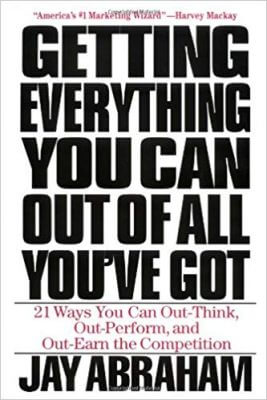 One of the most seductive titles I have ever owned was by Jay Abraham, famed marketing guru. “Getting Everything You Can Out Of All You’ve Got“.
One of the most seductive titles I have ever owned was by Jay Abraham, famed marketing guru. “Getting Everything You Can Out Of All You’ve Got“.
It came out both as a book and a set of two audio cassettes… before there were CDs…
I listened to those audio cassettes for years, every time I drove. I can tell you most of the ways you can out-think out-perform, out-earn the competition. Maybe I can even teach you. But doing it? I did some of it, but not many of the 151 different methods he teaches.
Some things have to be done, practiced, implement, to become working knowledge, skill, and in this topic, at that time, I didn’t know it, I didn’t do it.
Even though I knew, I could have known, that marketing is like playing the violin: you learn by doing. The words are only there as guidance. That the words are not enough, and the actions without words are not enough either.
I have done 26 years of Landmark. I did 10 years of Peak Potentials. I don’t remember them ever saying that if you have no skills to build on, you won’t benefit much from their courses.
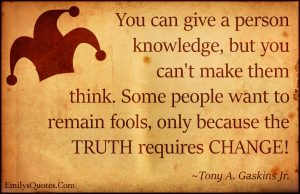 I often attempt to help people find the area of work where they could be most successful with what they already have.
I often attempt to help people find the area of work where they could be most successful with what they already have.
I use the method of the skillfinder in the What Color Is Your Parachute.
The method is simple: you want to find things that you did that resulted in the success that you intended.
Then you need to write those stories up in a clever way to use “skill-words”.
In my programs, I have not found any person, yet, who had seven success stories to write. Outside of my programs, of course, there are people who are better. But my programs attract the wishful thinkers, who want more than they can have with what they have… and yet haven’t found out that they need to learn new skills, need to have more small successes under their belt to have more… to be successful with.
And, of course, when you join my courses, you bring the same attitude to them, the same attitude that has rendered you an underachiever…
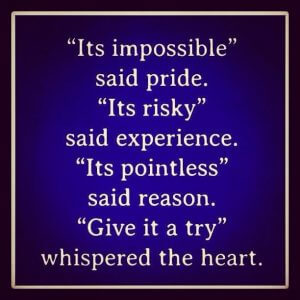 An underachiever is someone who could achieve more, but they don’t… mostly because they don’t have the consciousness to shape their attitude towards effort, toward guidance, toward learning.
An underachiever is someone who could achieve more, but they don’t… mostly because they don’t have the consciousness to shape their attitude towards effort, toward guidance, toward learning.
They want what they want without having to work for it. They want to be taught, but they don’t want to learn. They want guidance, but they don’t follow it. They move out of the way of any discomfort… and then cry foul.
The definition of a distinction is only a few sentences. Shorter than most any poems.
Without learning them, verbatim, the definition will never come alive.
Remember, a distinction is like the forest hiding behind the trees. You need a switch-mechanism to bring it into the foreground.
No exact words in the exact order… no distinction. Sorry. You are not stupid, you are just sloppy…
Now, here comes the kicker: How you do anything is how you do everything.
The how of you going about learning to live a life you love, is the same as your “how” in your relationships, the same as the “how” in your health, your work, everywhere.
No wonder you don’t love yourself. Do you love yourself sloppy, resistant, moving out of the way, crying foul when you don’t do the work? I don’t, and you probably don’t either.
 But unless you become someone who can be loved by you, your life is going to be sh*tty… don’t kid yourself about it.
But unless you become someone who can be loved by you, your life is going to be sh*tty… don’t kid yourself about it.
You’ll be boring. And you’ll be bored.
Start with first things first.
Bring some integrity into your daily activities, some rigor. And drop creativity when it comes to your daily activities: learn a routine that has integrity in it, and then don’t deviate. Routine into your morning, routine into your eating, routine into your schedule, routine into your evenings.
Leave creativity where it is needed: when you are creating something.
Creativity uses a lot of brain fuel that is of limited supply. Even for geniuses.
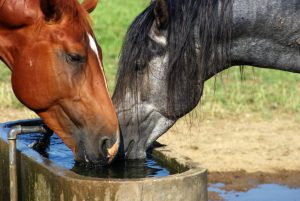 Once you have a life of healthy routines that produce health, productivity, calmness and orderliness, you can start having energy and ambition to enlarge your life.
Once you have a life of healthy routines that produce health, productivity, calmness and orderliness, you can start having energy and ambition to enlarge your life.
I have students who can barely, scarcely manage the demands of their lives, (no routines, no organization, etc.) but regardless, take time out to have extramarital affairs, or at least dream about them, or suddenly start a new relationship that completely takes them away from where they said they were heading.
Avoiding is the most frequent strategy of the underachiever.
Like an untrained dog, an untrained horse, theirs is an unhappy life. Neither free, nor useful.
That is you. Congratulations… if you love it.
Get trained, if you don’t.
I don’t train how to learn. I could, but that is not my strength… so you have to find a way on your own. I am here to guide you, if you paid for it (email coaching), but you have to do the work.
I don’t know if the coursera course is any good… the reviews are good, but you know what I think about reviews…
It’s a four week course, and I just registered for free…
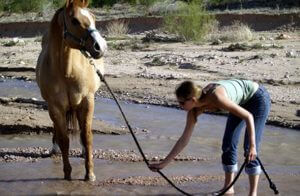 I know, you can take a horse to the water, but you can’t force it to drink.
I know, you can take a horse to the water, but you can’t force it to drink.
Barbara Oakley talk at google
Barbara Oakley TED talk
PS: That book/audios by Jay Abraham, are seductive and misleading.
Why? Because if the title has two parts.
“Getting Everything You Can Out Of All You’ve Got”
Part one is the foundation. Out of all you’ve got. Unless you increase all you’ve got, remove the ineffective, unproductive stuff you have, and replace it with good, effective, productive skills, knowledge, habits, routines, you’ll get mighty little out of all you’ve got.
How? It is like being an untrained beginner cook, having potatoes, onions, fat, and paprika.
Are you going to be able to make a heavenly meal fit for a king with it? I don’t think so.
Whereas I can. Why? Because I can cook, really cook.
And if you look, what you have in your pantry is less than a few ingredients. How do I know? Your lack of success stories tell me…
And you, taking amazing courses, is like sowing seeds on unfertile ground that is hard… all the seeds die at different stages of growth, some as seeds, rot. Some as seedlings, but no harvest is forthcoming, unless the soil is made fertile.
And it is your job.
I have a student who insist on doing everything without ever asking for help, guidance, or learning.
A foolproof way to have an unfertile ground. Stupid as the stupid does… Death is all around him.
Read the original article: Getting Everything You Can Out Of All You’ve Got… how much would that everything be?
